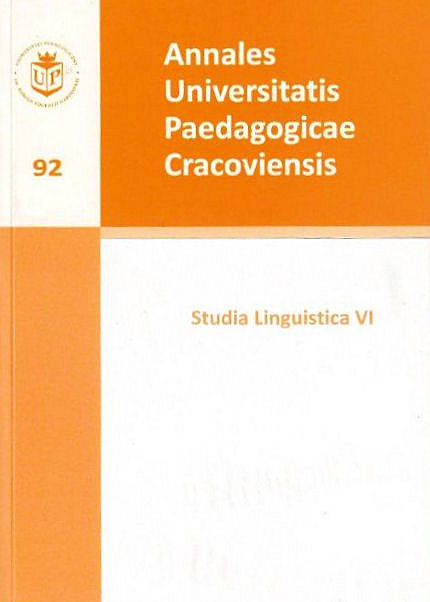U prząśniczki siedzą jak anioł dzieweczki i ja jestem szparka, ja sekretarka, czyli tajemnice dawnej leksyki
Main Article Content
Abstract
In the 21st century Polish language, many of the archaic words and expressions of yesteryear still function. In spite of their relative frequency (occurrences in familiar folk or pop songs), they often remain incomprehensible to the vast majority of language users. The ignorance of the lexeme’s denotational definition is usually the reason. Often, the context in which the word occurs is misleading. The lexeme prząśniczka has always meant ‘part of the reel, narrow small board to which the yarn is attached’, rather than ‘a woman spinner, a person performing the activity of spinning’. The adjective szparki is largely forgotten today, with its archaic meaning ‘quick, jaunty, perky’. In the past, people would say that ‘an old man still walked szparki’ (that is ‘fast’) or he was a szparki fellow. The adverb szparko ‘firmly, strongly, heavily’ was also used. A contemporary songwriter makes a clever use of the archaic adjective in one of the texts for Maryla Rodowicz entitled Szparka sekretarka (literally: ‘A lively, efficient secretary’). Meanwhile the lyrics were mostly misinterpreted as obscene probably due to the existence of the homonymous noun szparka (Eng. slit, gap).the author appends a comprehensive glossary of the CB language.
Downloads
Article Details
Author, submitting a text to the editorial board of the journal “Annales Universitatis Paedagogicae Cracoviensis. Studia Linguistica", certifies that the content of the article has not been published so far and that the work does not violate in any way the copyright or related rights of other person, as well as other rights of third parties, and that no one's rights to the work (or any part thereof) have been missed. After signing the contract, the property rights to the published materials are transferred to the Scientific Publisher of the University of the National Education Commission, Krakow.
“Annales Universitatis Paedagogicae Cracoviensis. Studia Linguistica” is an open access journal, and all its content is made available free of charge to users and institutions under the Creative Commons CC-BY-NC-ND 4.0 license (attribution, non-commercial use, no derivative works). Under this license, the authors agree that their work may be lawfully reused for any purpose, except for commercial purposes, without the prior consent of the author or publisher. Everyone can read, download, copy, print, distribute and process these works, provided that the author's marking and the original publication place are correct. Published texts may not be used to create derivative works (e.g. to translate and publish in another language without the consent of the publisher). This is in line with the BOAI (Budapest Open Access Initiative) definition. "Studia Linguistica" does not charge for submitting or processing articles.
References
III Śpiewnik domowy, 1897, oprac. W. Rzepko, Warszawa, Wydawnictwo Gebethner i Wolff.
Google Scholar
Bańko M., 2003, Mały słownik wyrazów kłopotliwych PWN, Warszawa.
Google Scholar
Karłowicz A., Kryński A., Niedźwiedzki W., 1900–1927, Słownik języka polskiego (tzw. warszawski), t. 1–8, Warszawa.
Google Scholar
Kreja B., 2000–2001, Mówię, więc jestem. Rozmowy o współczesnej polszczyźnie, Gdańsk, t. 1–2.
Google Scholar
Słownik 100 tysięcy potrzebnych słów, 2006, red. J. Bralczyk, Warszawa.
Google Scholar
Słownik języka polskiego PWN, 1958–1965, red. W. Doroszewski, t. 1–11, Warszawa.
Google Scholar
Słownik wyrazów zapomnianych, czyli słownictwo naszych lektur, 2001, red. K. Holly, A. Żółtak, Warszawa.
Google Scholar
Uniwersalny słownik języka polskiego PWN, 2003, red. S. Dubisz, t. 1–4, Warszawa.
Google Scholar
Wielki słownik wyrazów obcych, 2003, red. M. Bańko, Warszawa.
Google Scholar
